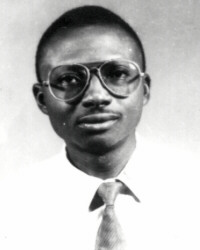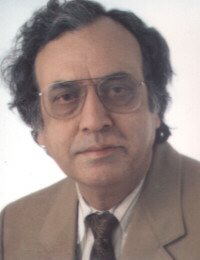Low Temperature Conversion LTC
Members

|

|

|
|
Claus-Jürgen Deyle
(CD)
|
Kayode Esuoso
(KE)
|
Harald Lutz
(HL)
|
Fields of Research
Low temperature conversion (LTC) was orginally developed at the
University of Tübingen (MK) for the treatment of sewage sludge.
Subsequently it has been applied to biomass, agricultural waste,
rubbish and plastics. The technique mimics the natural processes
involved in the formation of oil and coal. Organically bound carbon
is converted to oil and charcoal in a thermal process at temperatures
between 250°C and 400°C, under atmospheric pressure
in the absence of oxygen.
LTC of used plastics (polyvinylchlorid, polystyrene, poymer blends), lacquer sludges (CD) as production of chemical raw materials.
LTC of municipial and industrial wastewater sludges as well as industrial by-products. This include by-products of sugar cane, mandioka and grape together with coconut, cacao husk and Babassu. Apart from the oil activated carbon can also be obtained from these raw materials (HL).
LTC of some underutilized tropical biomass like Monodora tenuifolia, Adenopus breviflorus, Antiaris africana, Telfairia occidentalis, Cucumeropsis edulis, Cyperus esculentus (KE).
Cooperations
-
Universidade Federal Fluminense (UFF) Niterói - RJ - Brazil
Group of Prof. Dr. R.Damasceno
-
Universidade de Lorena e Universidade Estadual do Norte Fluminense - Brazil
Group of Prof. Dr. D. G. Pinatti
-
Perth, Australia
Bridel, , Skripsky S.-M.,
References
-
BAYER, E., MAURER, A., DEYLE, C.-J., KUTUBUDDIN, M., Recovery
of activated carbons from wastes via Low Temperature Conversion,
Part II: Analysis and evaluation of applicability, Fresenius Env.
Bull., 4 (1995), 539-44.
-
E. BAYER, M. KUTUBUDDIN, C.-J. DEYLE, A. HAAG, Niedertemperaturkonvertierung
von funktionalisierten Kunststoffen, Umwelt 95/96, Jahrbuch für
Umwelttechnik und ökologische Modernisierung, Media-Partner-V.
Gütersloh, S.35
 Index
Index
 General Information
General Information
 Analytics
Analytics
 Oligonucleotides
Oligonucleotides
 Peptides
Peptides
 Polymeres
Polymeres
 Sidelines
Sidelines









 Index
Index
 General Information
General Information
 Analytics
Analytics
 Oligonucleotides
Oligonucleotides
 Peptides
Peptides
 Polymeres
Polymeres
 Sidelines
Sidelines